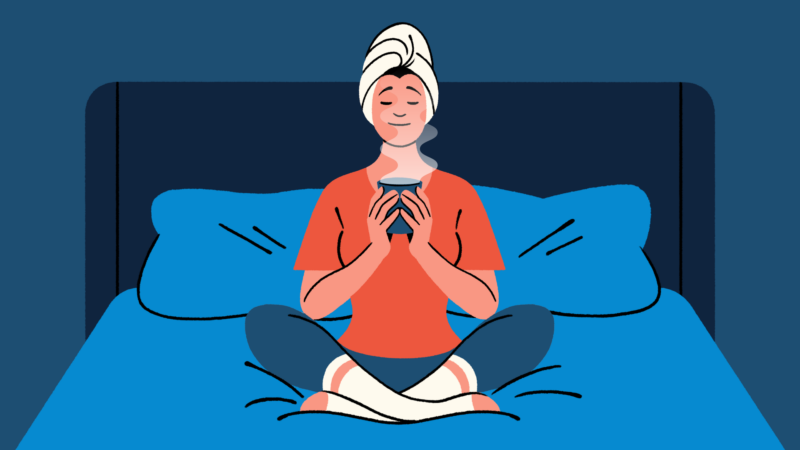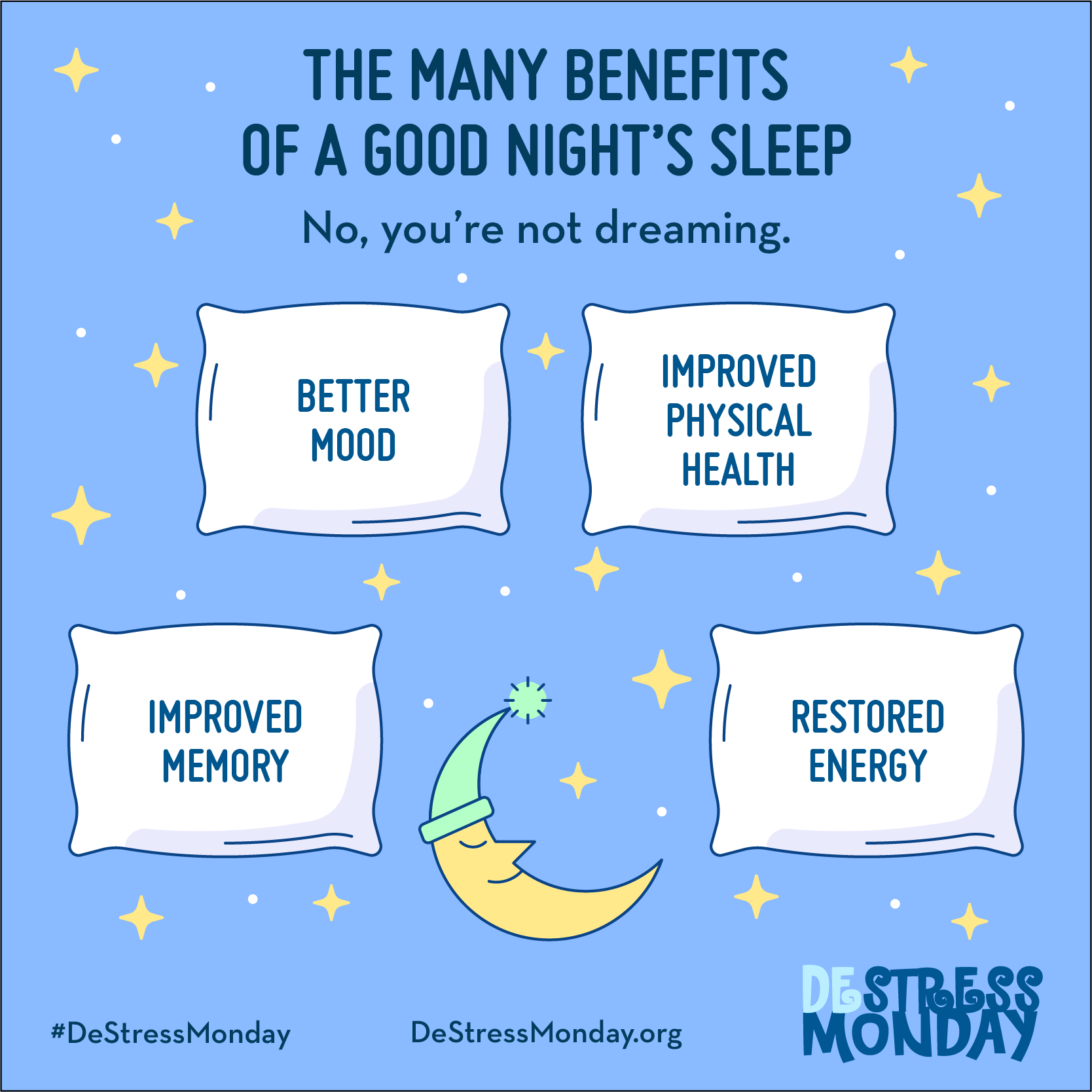The Benefits of a Good Night’s Sleep
Sleep is an essential function that allows the body and mind to recharge. When we get the proper amount of sleep, we wake up feeling energized, invigorated, and mentally alert.
But how much sleep do we really need?
The National Sleep Foundation recommends that people of all ages get a minimum of seven hours of sleep each night. But despite this advice, 30% of Americans fail to get the proper amount of sleep. As a result, the Centers for Disease Control and Prevention (CDC) has actually declared sleep deprivation a public health problem.
Sleep deprivation can negatively affect a person’s physical health, mental wellbeing, and cognitive functioning. Side effects of not enough sleep typically include sluggishness and exhaustion, but sleep deprivation can also trigger or exacerbate more significant health issues such as chronic pain, high blood pressure, anxiety, and depression. Without quality sleep, it also becomes difficult to concentrate, remember, or retain information.
The Sleep Cycle
Not all sleep is created equal, and over the course of a night the body will experience as many as four different stages of sleep. These stages repeat themselves, with the entire cycle (stages 1-4) lasting between 90-120 minutes. Each stage plays an important role in preparing the body and mind for the day ahead, with the first three stages consisting of non-REM (rapid eye movement) sleep and the final stage being REM sleep. Scientists believe that the first three stages are more physically restorative, while REM sleep is associated with memory, thinking, and emotions.
Benefits of Quality Sleep
Getting the proper amount of sleep and adhering to a regular sleep schedule are two ways to dramatically improve your physical health and mental wellbeing. This Monday, learn about how quality sleep can benefit your cognitive functions, physical health, energy levels, and mood.
Cognitive Functions
Evidence suggests that sleep enhances most type of cognitive functions, including memory, problem-solving, creativity, emotional processing, and judgment. These abilities are all necessary components of learning and retention. A history of insomnia or sleep deprivation can have negative long-term consequences on mental acuity, which makes improving the quality and duration of your sleep even more important.
Physical Health
The relationship between sleep and physical health has been thoroughly documented. Sleep deficiency can disrupt normal bodily processes and weaken the body’s immune system and its defense against chronic diseases. Sleep deprivation has been linked to a disruption in hormone production, which can affect appetite and insulin levels, leading to higher instances of obesity and type 2 diabetes. And since blood pressure is generally reduced during sleep, not getting the proper amount of quality sleep time can lead to a higher daily average blood pressure, which in turn may increase the risk of heart disease and stroke.
Mood
Research shows that partial sleep deprivation has a significant impact on mood. According to a study from the University of Pennsylvania, subjects who were limited to only 4.5 hours of sleep a night for one week reported feeling more stressed, angry, sad, and mentally exhausted. When study participants returned to their normal sleep schedule, they reported a dramatic improvement in mood. Implementing a sleep routine or schedule that involves a regimented bedtime, “screen ban,” and comfortable sleep environment can help make falling asleep easier.
Energy Levels
Sleep helps conserve and restore energy through the regulation of two important chemicals—glycogen and adenosine. Glycogen is involved in energy storage in the brain; its levels decrease during wakefulness but are restored during sleep. Adenosine, on the other hand, accumulates during waking hours and promotes sleepiness. The two chemicals work together in that glycogen reduction leads to a build-up of adenosine, promoting sleepiness. When a person fails to get enough sleep, the levels of these chemicals are thrown out of balance, which can lead to fatigue and sluggishness.


Want more sleep tips?
Our Healthy Monday Sleep Well package offers ten weeks of helpful practices designed to help you develop healthy habits and sleep better, one Monday at a time.
